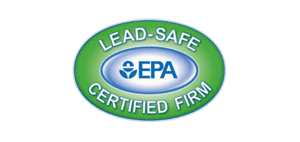Water damage is a common problem faced by homeowners, and the consequences can be severe, both to the structural integrity of the property and the health and safety of the inhabitants. But what happens when you need to stay overnight in a water-damaged home? Is it safe to do so?
In this article, we will explore the potential risks associated with sleeping in a house with water damage. We will delve into the causes and consequences of water damage, discuss the health hazards that can arise, and assess the safety of staying overnight in such a property. By understanding the risks, you can make informed decisions about how to deal with water damage effectively.
Key Takeaways
- Water damage can cause a range of problems, from structural damage to mold growth and electrical hazards.
- Exposure to mold and other contaminants in water-damaged homes can lead to respiratory problems, allergies, and other health issues.
- The safety of sleeping in a water-damaged home depends on the extent and severity of the damage, as well as the presence of hazardous materials.
- If you must stay in a water-damaged home, take steps to minimize your exposure to hazards, such as wearing protective gear and avoiding affected areas.
- Dealing with water damage promptly and effectively can help prevent health and safety issues, as well as structural damage.
Understanding Water Damage and its Consequences
Water damage can occur due to various reasons, such as heavy rain, burst pipes, or plumbing issues. When water enters a home, it can cause structural damage, leading to weakened foundations, walls, and floors. Furthermore, water damage can create a breeding ground for mold, which can spread throughout a home and have severe health consequences.
The consequences of water damage can be devastating. For instance, it can lead to structural damage that compromises the stability of your home. If left unaddressed, water damage can also cause mold growth, creating a dangerous environment for the occupants. Additionally, water damage can cause electrical hazards and even pose a risk of fire.
To better understand the implications of water damage, it’s essential to evaluate the severity of the damage and take appropriate steps to remediate it. It is imperative to seek professional help to handle water damage effectively.
| Consequences of Water Damage | Description |
|---|---|
| Structural damage | Water can cause structural damage, compromising the integrity of the building. |
| Mold growth | Moisture caused by water damage creates an environment for mold to grow, which can have serious health implications. |
| Electrical hazards | Water can cause electrical hazards, putting the occupants of the property at risk. |
| Health risks | Water damage can cause a range of health risks, including respiratory problems and allergies. |
| Fire risk | Water damage can lead to electrical fires or pose a risk of fire due to weakened structural integrity. |
By understanding the consequences of water damage, you can take necessary precautions to protect your home and the health of your loved ones. Do not underestimate the severity of water damage, as it can have long-lasting and detrimental consequences if left unaddressed.
Health Risks of Sleeping in a Water-Damaged Home
When water damage occurs in a home, it creates an ideal environment for mold, bacteria, and other contaminants to grow. Exposure to these harmful substances can lead to a range of respiratory problems, allergies, and other health issues.
If you sleep in a water-damaged home, you may be at risk of inhaling mold spores, which can cause allergic reactions. These reactions may manifest as coughing, sneezing, and eye irritation. If you have a pre-existing respiratory condition, such as asthma, exposure to mold can worsen your symptoms and trigger an asthma attack.
In addition to mold, water damage can also lead to bacterial growth. Bacteria can cause infections, which may lead to fever, fatigue, and other flu-like symptoms. Exposure to contaminated water can be particularly dangerous and may cause gastrointestinal problems.
It is essential to address water damage promptly to prevent the growth of harmful contaminants and reduce the risk of health problems. If you suspect that your home has water damage, it is crucial to have it inspected by a professional and take necessary measures to repair and restore the affected areas.
Assessing the Safety of Sleeping in a Water-Damaged Home
When deciding whether it’s safe to sleep in a water-damaged home, there are several factors to consider. The severity of the damage and the extent of mold growth are the primary safety concerns. If water damage is extensive and has been left untreated for an extended period, it can create serious hazards that could jeopardize your health and well-being. Sleeping in a water-damaged home puts you at risk of respiratory problems, allergies, and other health issues.
Before you decide to stay overnight in a water-damaged home, it’s essential to conduct a thorough risk assessment. Start by identifying the type of water damage. Clean water, such as from a burst pipe, is less hazardous than greywater or blackwater, which contain contaminants and create a higher risk of infection. Inspect the home for signs of mold growth, including visible mold and musty odors.
If you notice mold, conduct a mold spore test to determine the extent of the growth. Test the air quality to check for contaminants and assess any structural damage that water may have caused. If the damage has affected the home’s structure, it may weaken the foundation and create further safety risks.
Based on these factors, you can determine the level of risk associated with sleeping in the water-damaged home. If the damage is minimal, and mold growth is not present, sleeping in the home may be relatively safe. However, if the damage is substantial, and there is significant mold growth or structural damage present, it’s best to avoid staying in the house overnight until the damage is fixed.
In summary, the safety of sleeping in a water-damaged home depends on the severity of the damage, the extent of mold growth, and other factors. To make an informed decision, conduct a thorough risk assessment, and prioritize your health and safety above all else.
Conclusion
You now understand the risks associated with sleeping in a water-damaged home. Water damage can cause a range of consequences, from structural damage to mold growth and electrical hazards. Staying overnight in a water-damaged home can also lead to a variety of health risks, including respiratory problems, allergies, and other related health issues.
Assessing the safety of sleeping in a water-damaged home requires a thorough evaluation of several factors. The severity of the water damage, the extent of mold growth, the presence of structural damage, and other relevant factors must be considered. Evaluating these elements can help determine the level of risk associated with staying overnight in a water-damaged property.
If you encounter water damage in your home, it is vital to take the necessary steps to ensure a safe and healthy environment. Hiring a professional to address the water damage promptly can help mitigate the consequences and reduce the risk of health and safety hazards. Remember that your health and safety should always come first when it comes to your home environment.
FAQ
Is it safe to sleep in a water-damaged home?
Sleeping in a water-damaged home can pose risks to your health and safety. It is important to consider the potential hazards that may arise from water damage, such as mold growth and structural issues.
What are the consequences of water damage?
Water damage can have various consequences, including structural issues that compromise the integrity of the building, the growth of mold and mildew, and potential electrical hazards. These consequences can impact the safety of staying overnight in a water-damaged home.
What are the health risks of sleeping in a water-damaged home?
Sleeping in a water-damaged home can expose you to a range of health risks. Mold growth, bacteria, and other contaminants commonly found in water-damaged environments can trigger respiratory problems, allergies, and other health issues. It is essential to be aware of these risks before deciding to stay overnight.
How can I assess the safety of sleeping in a water-damaged home?
When assessing the safety of sleeping in a water-damaged home, factors such as the severity of the water damage, the extent of mold growth, and the presence of structural damage should be considered. Professional evaluation and remediation may be necessary to ensure a safe environment.
Should I sleep in a water-damaged home?
The decision to sleep in a water-damaged home depends on various factors, including the extent of the damage and the associated health risks. It is generally recommended to prioritize your health and safety by seeking professional advice and taking necessary precautions.




















